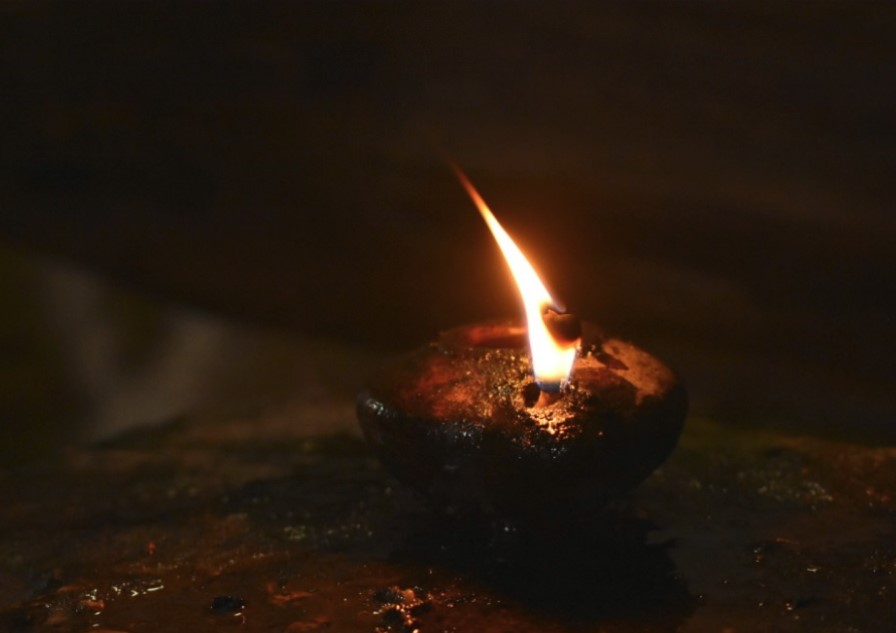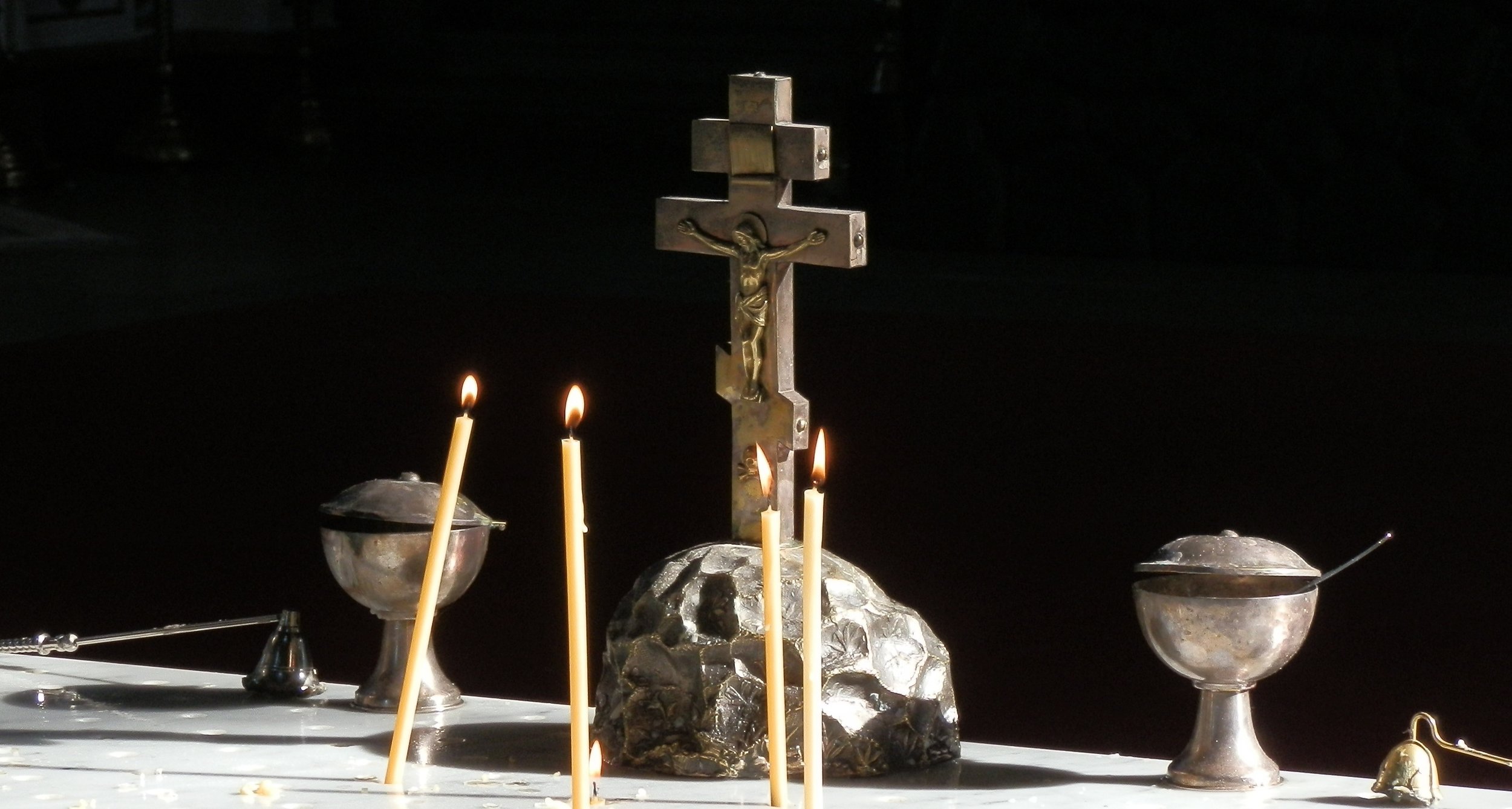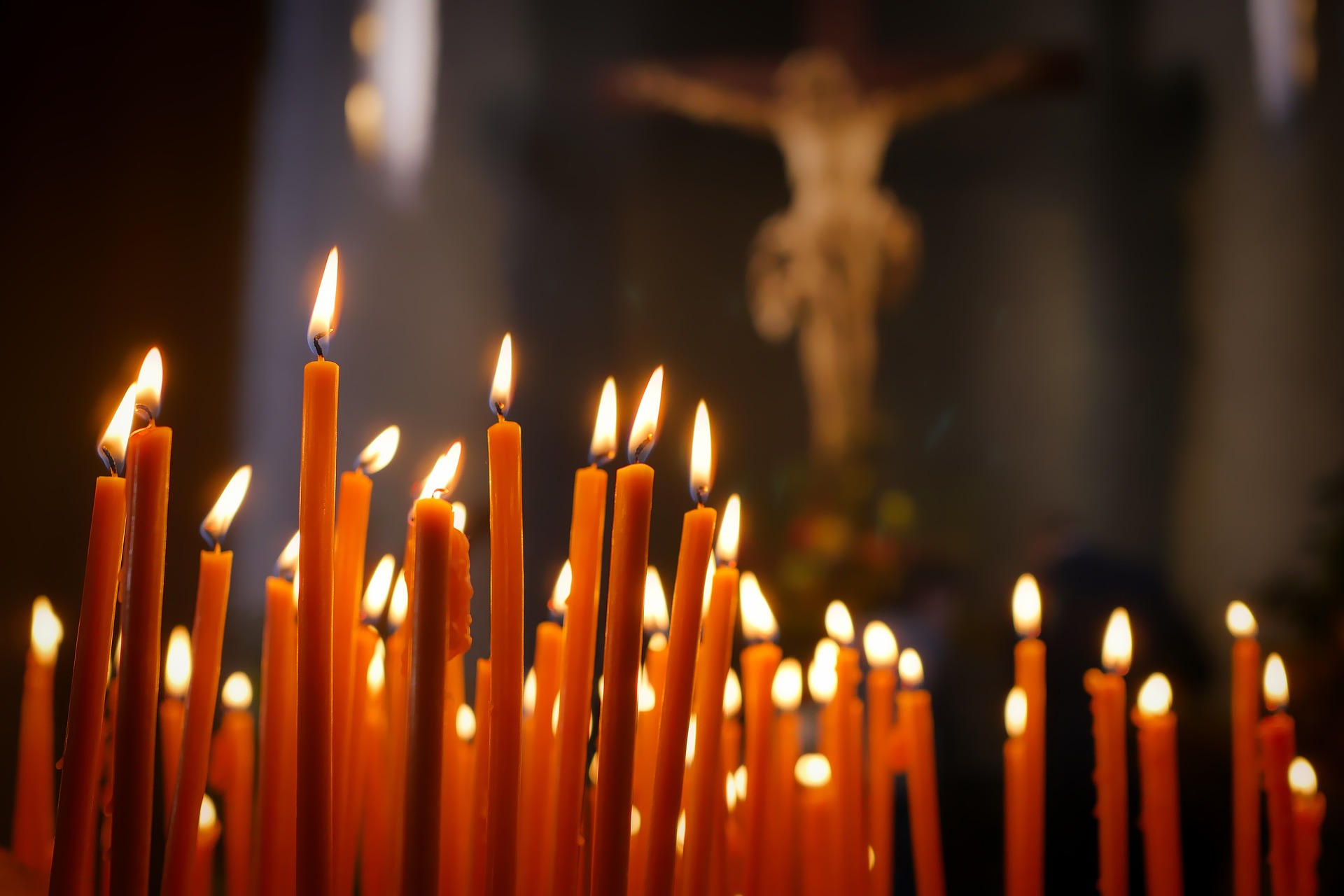Healing Atonement
The Orthodox Tradition
Photo credit: cuetor59, Pixabay.
Introduction
These resources explore the meaning of Jesus' death, from the understanding of the Orthodox tradition, both Eastern and Oriental. Jesus is God's way of undoing human evil, in a personal, loving way. His death was the climax of his victorious struggle over the corruption in his own human nature. We call this "Medical Substitution," although it has gone by other names.
Medical Substitutionary Atonement in the Orthodox Tradition
Debate on Facebook about whether the Orthodox Church taught, teaches, or could teach penal substitution from February 2020 in a Facebook group. This was a wide ranging discussion about Scripture and the early patristic theologians with two men, one of whom is an Orthodox priest. Curiously, he believes the patristic and Orthodox tradition teaches what he calls “penal substitution,” although I think he defines it poorly. I leave it to the reader to form their own opinions about that.
Other Resources on Medical Substitutionary Atonement in the Orthodox Tradition
Menaion: Epiphany (Jan.2) says, "Again my Jesus is cleansed in the Jordan, or rather cleanses our sins; for he truly comes to Baptism, wishing to wash out Adam’s record... Christ, has come to make beggared Adam rich through the Spirit... The Law of old and the company of the Prophets say, ‘Christ has come, by baptism refashioning us who had grown old by many offences.
Menaion: Forefeast of the Lights (Jan.3) says, "See, the enlightenment of believers, see, our atonement is about to enter the streams of the river to wash away the stain of humans’ wickedness, and to refashion us who had been crushed."
Matins on the Feast of Ascension. Kiilehua. "In a manifestation of great glory He Who humbled Himself in the flesh hath risen above the heavens; and our fallen nature hath been honored by sitting with the Father"
Anaphora of the Apostles, Liturgy of the Ethiopian Orthodox Tewahedo Church. This prayer over the eucharist was named for him, although authorship cannot be ascertained. Lines 113, 117, 146 read:
“O my Lord Jesus Christ, let not this Thy mystery be iniquity in me, rather let it be for the purifying of my soul and my body . . . Holy, holy, holy Trinity ineffable, grant me to receive this body and His blood for life and not for condemnation. Grant me to bring forth fruit that shall be well-pleasing unto Thee, to the end that I may appear in Thy glory, and live unto Thee, doing Thy will . . . And further I pray Thee and beseech Thee, O my Lord, that this Thy body and blood which I have received shall neither be for my shame nor for the guilt of my soul and body, but let them give me life and health; and teach me Thy fear, and instruct me in Thy love, so that I may please Thee all the days of my life and glorify Thee without ceasing.”
Anaphora of St. John, Liturgy of the Ethiopian Orthodox Tewahedo Church. This prayer over the eucharist was named for him, although authorship cannot be ascertained. Lines 33, 38 - 40 read:
“He Who sits upon the cherubim abode in a daughter of flesh; the consuming fire put on flesh; the invisible Spirit has been clothed with flesh; He was born from that which was hidden unto that which was open; He who forms infants in the womb became an infant; they wrapped with clothes Him who was clothed in light. He dwelt in the house of the poor as one Who is poor: as a King, He sent messengers to bring Him presents from far . . . They beat Him on the head as a servant and He set us free from the yoke of sin as Lord of all. He suffered all. He who cured the blind with his spittle and gave us the Holy Spirit received the spittle of the unclean. He who forgives sin was accused as a sinner by them. The judge of judges was judged by them. He was crucified on the tree to destroy sin: He was counted with the sinners to enroll us with the righteous. He died through His will, and was buried willingly; He died to destroy death, He died to give life to the dead; He was buried to raise those who were buried, to keep the living, the purify the impure, to justify the sinners, to gather together those who were scattered, and to turn the sinners to glory and honour.”
Anaphora of St. Basil, Liturgy of the Ethiopian Orthodox Tewahedo Church. Basil of Caesarea (330 - 379) was bishop of Caesarea, and this prayer over the eucharist was named for him, although authorship cannot be ascertained. Lines 20 - 22 read:
“He took flesh and was made man and taught us the path of salvation and granted us the birth from on high, of water and of the Holy Spirit. And He made us unto Himself a pure people, and purified us by the Holy Spirit, because He loved His own who are in this world, and gave Himself up by His will to deliver us from the death which reigned over us. By reason of it we were bound and sold through our sins. He descended into hell [hades, Sheol] from the cross.”
Anaphora of St. Cyril, Liturgy of the Ethiopian Orthodox Tewahedo Church. Cyril of Alexandria (376 - 444) was 24th patriarch of Alexandria, and this prayer over the eucharist was named for him, although authorship cannot be ascertained. Lines 81 - 82 read:
“Let not this coal of fire, which we have laid before Thee upon Thy holy altar, be our accuser, and let not this bread of worship which we break be for vengeance because we did not purify our soul and our body. It is fearful to open the lips to eat burning fire and swallow glowing coal, if the belly is not purified from deceit.”
Anaphora of St. Dioscorus, Liturgy of the Ethiopian Orthodox Tewahedo Church. Dioscorus of Alexandria (died 454) was 25th patriarch of Alexandria, and this prayer over the eucharist was named for him, although authorship cannot be ascertained. Lines 25, 35, 43, and 63 read:
“He who created man stretched forth His hands for suffering to set free Adam from the yoke of sin . . . The immortal died, died to destroy death, died to quicken the dead as He had promised them with the word of covenant . . . Grant it together unto all Thy people that it may be unto them for life and for purification from sin, unto endless ages. . . . As Thou did join the body of Thy Son with our body, and Thou did mix the blood of Thy Messiah with our blood, so put Thy fear in our heart and the beauty of Thy worship in our mind.”
Prayers on the Day of Assumption/Ascension. Anastasis, Ecumenical Patriarchate of Constantinople, Archdiocese of Thyateira and Great Britain. "Lifting up on your shoulders the nature which had been led astray, O Christ, you were taken up and brought it to God the Father... Lifting up our nature which had been slain by sin, O Saviour, you brought it to your own Father... The majesty of him who became poor in the flesh has been raised above the heavens and our fallen nature honoured by sitting with the Father... and having through compassion exalted our fallen nature, you have seated it with the Father. O God, having renewed in yourself Adam’s nature, which had descended to the lower parts of the earth, you took it up to-day above every rule and authority; as you loved it, so you made it sit with you; as you had compassion on it, so You united it to Yourself; as united with it, so you suffered with it; as not subject to suffering, yet you suffered and glorified it with yourself. When you came down from heaven to things on earth and as God raised up with you Adam’s nature which lay below in Hades’ prison, you brought it to heaven by your Assumption, O Christ, and made it sit with you on your Father’s throne, as you are merciful and love humankind."
Oktoechos, Sunday Matins, Tone 1, Canon, Ode 1, Troparion 1 (formalized 9th century) “Having divinely fashioned me out of the dust at the beginning . . . You extended your arms on the Cross, calling from earth my corruptible body, which you assumed from the Virgin” Ode 3, “O Christ, as the hypostatic Life and as compassionate God, Thou hast clothed Thyself with me, the corrupted one, descending, O Master, unto the dust of death, destroying the power of death, and arising on the third day, whereby Thou hast clothed me with incorruption”
Anonymous, An Apology for the Christian Faith, to the Muslims (c.800 AD) (Part 1, Section B) says,
"Then God expelled them from the Garden, and they dwelt opposite it; and God made the wall of the Garden to be of fire. Adam inherited rebellion, sin, and death, and [thenceforth] these ran in Adam’s progeny. No human being—prophet or otherwise—was able to save Adam’s progeny from rebellion, sin, and death... Thus God sent, from His Throne, His Word, who is from Himself—and saved Adam’s progeny. He clothed Himself in this defeated, enfeebled humanity from Mary the Good, whom God elected over the women of the worlds, and veiled Himself through her.* He destroyed, conquered, and overthrew the Devil by means of [this defeated, enfeebled humanity], and left him feeble and contemptible, no [longer] vaunting himself over Adam’s progeny, and severely distressed (when God defeated him by means of this humanity in which He had clothed Himself)."
[ ] = translator’s notes, included in the source material
* = Swanson's footnote: The language of “veiling” is significant not only because of its previous use in Christological catechesis (in which Christ’s divinity is “veiled” by His humanity) but also because of the overtones of Qurʾan 42:51: God may speak to a mortal “from behind a veil.”
Mark N. Swanson, "An Apology for the Christian Faith," edited by Samuel Noble and Alexander Treiger, The Orthodox Church in the Arab World 700 - 1700: An Anthology of Sources. St. Vladimir’s Seminary Press, 2014. Ch.1, says about this document:
“The library of the Monastery of Saint Catherine at Mount Sinai preserves, as Sinai ar. 154, a parchment codex usually dated to around the year 800— making it the oldest (reasonably well preserved) Arabic-language Christian book known to us today... This treatise, for which no witnesses besides the Mount Sinai codex are known, is an important starting point for the study of Chalcedonian Orthodox theology in the Arabic language and, indeed, for the study of Arabic Christian literature in general.”
Nikephoros of Constantinople (c.758 - April 5, 828), Contra Eusebium I 401 says, 'He did not possess a flesh other than our own, that which fell as a consequence of sin; He did not transform it [in assuming it]... He was made of the same nature as we, but without sin, and through that nature He condemned sin and death.' (cited by John Meyendorff, Byzantine Theology: Historical Trends and Doctrinal Themes. Fordham University Press | Google Books, 1979. p.49)
Sulayman al-Ghazzi (Solomon of Gaza, d. 1027 AD), Diwan, Part B, says,
“Likewise my Master in human form set me free. He holds my destiny, though He conceals it from me. They put Him on the cross, errorless, sinless And in His members, they also stretched me out. In His death my human nature died and He also arose with it, In His Adamic body, fashioned with clay. From His side flowed water and blood, Offered for the salvation of the elect.”
“Sulayman al-Ghazzi,” by Samuel Noble, edited by Samuel Noble and Alexander Treiger, The Orthodox Church in the Arab World 700 - 1700: An Anthology of Sources. St. Vladimir’s Seminary Press, 2014. Ch.6, says:
“As the author of the first collection of Christian religious poetry in Arabic, the early eleventh-century Palestinian bishop Sulayman al-Ghazzi (or Solomon of Gaza) holds a unique place in the history of Arab Christian literature. Although there appear to be no outside sources for his biography, his highly personal verse has allowed the editor of his works, Néophytos Edelby, to reconstruct the outline of his life... Around the age of eighty, Sulayman was ordained bishop of a see in Palestine, no doubt because of his great learning, which is evident in his writings.”
Agathon of Homs (~1050 - 1150 AD), Letter of Protest, in Defense of His Resignation, says:
“I, the unworthy and wretched sinner, ask Christ our Lord and true God, the Savior of all creation, who redeemed us with His blood, healed us with His passion, and bequeathed to us the Kingdom in His compassion and mercy, to guide me and all those who believe in Him to the true path, the path that is bright and narrow, sorrowful and hard, divine and Christian, leading unto life." (italics mine)
Agathon resigned from the bishop's seat, because he believed the other clergy in Homs were corrupt. Sadly, corruption was increasingly common, as Muslim rulers collected bribes from Christians for placement in clerical posts. Alexander Treiger, "Sulayman al-Ghazzi," edited edited by Samuel Noble and Alexander Treiger, The Orthodox Church in the Arab World 700 - 1700: An Anthology of Sources. St. Vladimir’s Seminary Press, 2014. Ch.9 says:
"Agathon was an Orthodox Arab, bilingual in both Arabic and Greek. His ability to cite the Church Fathers (Dionysius the Areopagite is his favorite) and his remarkable capacity for complex theological reflection are an eloquent testimony to his training... Probably on account of his fame as a theologian as well as, presumably, his social prestige in Antioch, a delegation from Homs appealed to him to become bishop of their city."
John Meyendorff, Christ's Humanity: The Paschal Mystery. St. Vladimir's Theological Quarterly 31, no.1, 1987: 22 - 30.
John Meyendorff, Imperial Unity and Christian Divisions: The Church, 450 - 680 AD. St. Vladimir’s Seminary Press | Amazon book, Jan 1, 1989. Meyendorff, n outstanding Orthodox theologian and historian, makes a historical note on how disciples of Cyril of Alexandria introduced the idea of Jesus taking a cleansed humanity from conception.
Kallistos Ware, How Are We Saved: The Understanding of Salvation in the Orthodox Tradition. Light and Life Publishing Company | Amazon page, Oct 1996)
Hany Mina Mikhail, What is Divine Justice? Coptic Orthodox Divine Justice website, 1999. A summary of his book in Arabic, translated into English, Atonement. See his page.
Hieromonk Damascene, What Christ Accomplished on the Cross. Orthodox Christian Information Center, Mar-Apr 2004.
Stephen Thomas, Deification in the Eastern Orthodox Tradition: A Biblical Perspective. Gorgias Press | Amazon page, Jun 2008. Notes 'deification as healing' and as 'work of the whole Trinity'
Stephen Freeman, A Common Faith. Ancient Faith blog, Jan 15, 2008. Quotes early theologians on 'deification'
Steve Hayes, Salvation and Atonement. Khanya blog, Jun 30, 2008. Compares Western and Eastern views
Antiochan Orthodox Christian Archdiocese, Saint Athanasius and the ‘Penal Substitutionary’ Atonement Doctrine. blog, 2010; website.
Ivana Noble, The Gift of Redemption: Vladimir Lossky and Raymond Schwager on Anselm of Canterbury. Comunio Viatorum, 2010.
Eric, Reformed Theology is Nestorian. Wicket's Take blog, Dec 18, 2010.
Daniel Marchant, Atonement in Orthodox Soteriology. thesis 2011; pdf file.
Steve Robinson, Love Wins - An Orthodox View. Steve Robinson, Sep 2011. A short video comparing Western and Eastern ways of doing evangelism
Darrell, What is the Eastern Orthodox View of the Atonement? The Recapitulation Theory. Tough Questions Answered blog, Nov 9, 2011.
Father James Bernstein, The Original Christian Gospel. Pravmir, Nov 1, 2011.
Father George Dion. Dragas, T.F. Torrance - A Theologian For Our Times: An Eastern Orthodox Assessment. Grace Communion International, Feb 23, 2013.
Aidan Kimel, St. Athanasius: Theologian of the Cross. Eclectic Orthodoxy, Apr 2, 2013.
Aidan Kimel, St. Athanasius: The Creation of Humanity in the Image of the Image. Eclectic Orthodoxy, Apr 4, 2013.
Aidan Kimel, St. Athanasius: The Fall of Man Into the Body. Eclectic Orthodoxy, Apr 4, 2013.
Aidan Kimel, St. Athanasius: The Nothingness of the World. Eclectic Orthodoxy, Apr 5, 2013.
Aidan Kimel, St. Athanasius: Substitutionary Atonement and the Dilemma of Death. Eclectic Orthodoxy, Apr 13, 2013.
Aidan Kimel, St. Athanasius: The Death of Death in the Death of God. Eclectic Orthodoxy, Apr 15, 2013.
Father Emmanuel Hatzidakis, Jesus: Fallen? The Human Nature of Christ Examined from an Eastern Orthodox Perspective. Orthodox Witness | Amazon page, Jan 2013. Hatzidakis provides a rich source of patristic quotations, but he takes the "unfallen humanity" view of Jesus' incarnation, which seems to have developed in the 5th century onwards. Kerolos K. Ibrahim writes in a customer review on Amazon:
"With my deep respect and honor to Fr. Emmanuel Hatzidakis, this book not only fails to recognize the tragic implications of its theological conclusion (that Christ assumed our unfallen nature), but simply fails to interpret scriptures and the early Church Fathers accurately, especially that of the Greek East. The author misconstrues the meaning of scriptures. Namely, that Christ has been “made a curse for us,” (Gal 3:13) and “God made him who had no sin to be sin for us” (2 Cor 5:21), and God sent “His own Son in the likeness of sinful flesh” (Rom 8:3). The early Church Fathers actually conclude that Christ assumed our fallen nature, although the author somehow states otherwise.
St. Athanasius writes, Christ “transported our errant race into himself, took a servant’s form, putting on that flesh which was enslaved to sin, and coming in the likeness of sinful flesh, ‘became sin for us and a curse.” (Against the Arians - pg. 378) and again, “It was appropriate for the Lord, when He was clothed in human flesh, to put it on in its totality, together with all the passions proper to it, so that just as we say the body was properly His, so also the passions of the body might be said to belong to Him alone.” (Against the Arians - pg. 90-91)
St. Gregory Nazianzen writes, “He was actually subject as a slave to flesh, to birth, and to our human experiences; for our liberation, held captive as we are by sin, He was subject to all that He saved.” (On God and Christ, pg. 94-95) and again, “Receiving an alien “form” He bears the whole of me, along with all that is mine, in Himself, so that He may consume within himself the meaner element, as fire consumes wax or the Sun ground mist, and so that I may share in what is His through the intermingling.” (On God and Christ, pg. 97)
St. Gregory Nyssa, “The Pauline pronouncement that Christ ‘became sin’ means that He united with Himself the sinful human soul and was invested with our sinful nature. (Life of Moses, pg. 62).. “By becoming sin he became also a serpent, which is nothing other than sin.” (Life of Moses, pg. 62)
St. Cyril of Alexandria - “Christ assumed the fallen body united in an ineffable manner with the Word that endows all things with life” (Letters of Cyril of Alexandria, pg. 105)
I do not wish to mention the entire list of mistakes in this book, but the criticism in the work of E. Jerome Van Kuiken, Christ's Humanity in Current and Ancient Controversy: Fallen or Not? further elaborates on additional errors in this book."
Nathaniel McCallum, Original Sin and Orthodoxy: Reflections on Carthage. Ancient Faith blog, Aug 22, 2013. McCallum ntriguingly credits transmission of "original guilt" not to Augustine's translation of Romans 5:12 but to his view that there was a gap between genesis (conception) and kinesis (motion); although see Francis Schüssler Fiorenza, John P. Galvin, Systematic Theology: Roman Catholic Perspectives, Volume 2. Fortress Press | Google book, Jan 1999. Fiorenza and Galvin argue that some facets of Roman Catholic theology (like this point) have been in a state of flux; and see also Michael Pomazansky, Orthodox Dogmatic Theology. Intratext, Feb 1, 2009. Pomazansky also faults Augustine for his interpretation of Romans; but see Nathaniel McCallum, Inherited Guilt in Saints Augustine and Cyril. Academia, 2016. McCallum re-engaged the issue.
Brad Jersak, The Gospel in Chairs. Jesus Exclusive Savior, Oct 24, 2013.
Stephen Freeman, The Scope of Passover and Penal Substitution. Ancient Faith | Glory to God for All Things blog, Apr 25, 2014.
Stephen Freeman, Legal Problems. Ancient Faith | Glory to God for All Things blog, May 29, 2014.
Matt Ferdelman, Why I Deny Penal Substitutionary Atonement. Journey to Orthodoxy, Dec 29, 2014.
Timothy Copple, The Atonement of Jesus Christ. Orthodox Convert website.
David Bentley Hart, A Gift Exceeding Every Debt: An Eastern Orthodox Appreciation of Anselm's Cur Deus Homo (Scribd) although Joseph Cardinal Ratzinger critiques Anselm
Stephen Freeman, No More Debt. Ancient Faith | Glory to God for All Things blog, Apr 13, 2015. An Eastern Orthodox critique of modern finance based on atonement theology
Patrick Henry Reardon, Reclaiming the Atonement: An Orthodox Theology of Redemption, Volume 1: The Incarnation. Ancient Faith Publishing | Amazon book, Dec 22, 2015.
Frederica Mathews-Green, Orthodoxy and the Atonement. Theoria, Jan 18, 2016) “forgiveness” means that God simply lets go of the debt, not that someone else has to pay it
Josh, Justification in the Early Church – The Early Perspective on Justification. The Scripture Says, Mar 27, 2016.
Aidan Kimel, Kallistos Ware and the Fall of the Incarnate Christ. Eclectic Orthodoxy, Jun 13, 2016. See also my comments
Aidan Kimel, John Meyendorff and God's Assumption of Fallen Humanity. Eclectic Orthodoxy, Jun 19, 2016.
Stephen Freeman, Sin Is Not a Legal Problem — Athanasius and the Atonement. Ancient Faith | Glory to God for All Things blog, Jul 12, 2016.
Matthew Baker, Seraphim Danckaert, and Nicholas Marinides, On the Tree of the Cross: Georges Florovsky and the Patristic Doctrine of Atonement. Holy Trinity Seminary Press, Aug 1, 2016. A wonderful collection of articles by Orthodox scholars focused on patristic sources.
Stephen Freeman, The Seat of Mercy and the End of the Legal View. Ancient Faith | Glory to God for All Things blog, Aug 11, 2016. A study of the New Testament word "hilasterion" and the cultural shifts in medieval law that gave rise to abstractions like penal substitution.
Stephen Freeman, Being Saved - The Ontological Approach. Ancient Faith blog, Aug 12, 2016. Demonstrates why I like the term "medical substitution" for this theology
Aidan Kimel, When Did Jesus Decide to Die? Eclectic Orthodoxy, Aug 15, 2016.
Stephen Freeman, How Good Is Your Will? Part Two of the Ontological Model. Eclectic Orthodoxy, Aug 16, 2016.
David Bentley Hart, Interview - Crackers and Juice Podcast. ObjectiveBob, Feb 27, 2017. At 50 min mark on Calvin; 55:30 min mark on Barth
Lawrence Farley, David Bentley Hart’s "The New Testament: a Translation". No Other Foundation blog, Oct 9, 2017. Has important comments about the Greek word aionion and the theory of universalism
Brad Jersak, Does God Save Us from God? Clarion Journal, Sep 10, 2018.
Stephen Freeman, Being Saved - The Ontological Approach. Ancient Faith | Glory to God for All Things blog, May 24, 2019.
Fr. Maximos Constas, Did Christ Repent? The Greek Fathers and the Vicarious Repentance of Christ (Part 4). The Pappas Patristics Institute, Oct 28, 2021. Constas cites the late Byzantine theologian Symeon of Thessaloniki (c.1381--1429).
Eugenia Scarvelis Constantinou, The Crucifixion of the King of Glory: The Amazing History and Sublime Mystery of the Passion. Ancient Faith Publishing | Amazon page, April 2022.
Sources of Atonement Theology
These resources explore the foundation of “Medical Substitution” as the best understanding of the Bible, and the original understanding of the church. There are also links to books, web articles, etc. from representatives of the three broad Christian traditions.





